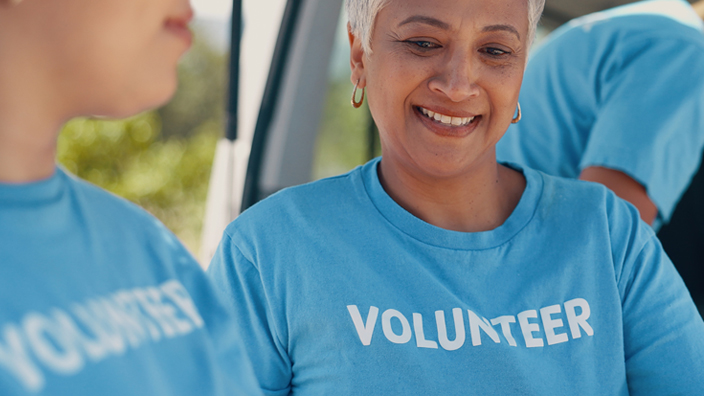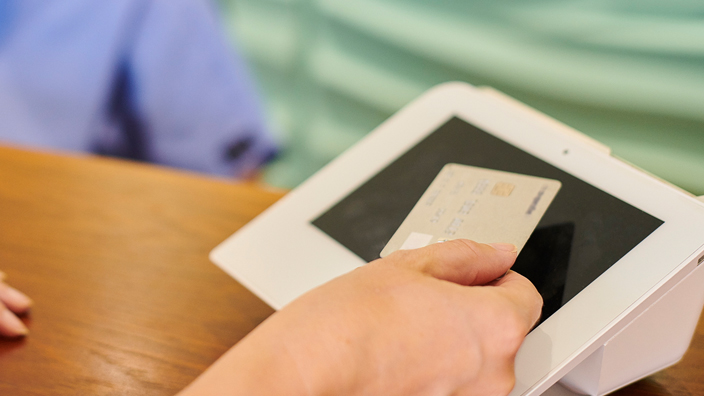
It’s a good time to support the CFC
Giving Tuesday and International Volunteer Day are this week
The Combined Federal Campaign will highlight two opportunities for federal employees to make charitable contributions this week.
Giving Tuesday — the biggest giving day around the world, raising an estimated $3 billion each year — is Tuesday, Dec. 3.
For many charities that are part of the Combined Federal Campaign, this is the most important time of the year. Some of these charities rely on Giving Tuesday donations to fund the entire upcoming year’s worth of services they provide to beneficiaries.
International Volunteer Day, which the United Nations began in 1985 to recognize people who volunteer for charitable organizations, is Thursday, Dec. 5.
The Combined Federal Campaign uses International Volunteer Day to remind federal employees that they can donate volunteer hours for charities in addition to making monetary contributions.
Volunteers can use their professional skills or personal talents for a variety of activities, such as helping an organization balance its budget book, translate documents or review a legal contract.
The campaign, also known as the CFC, is the federal government’s largest workplace charity drive.
The Postal Service’s goal is to raise $3 million this year.
Pledges can be made through payroll deduction, on paper or online through the CFC mobile app.
The campaign will conclude Wednesday, Jan. 15.
Employees with questions can email the Postal Service’s CFC team.

As the holidays near, here’s a reminder about gifts
USPS employees must follow the rules on giving and receiving
The USPS Ethics Office wants to remind employees of the rules on the giving and receiving of holiday gifts, whether from colleagues or outside sources.
Postal Service regulations prohibit employees from accepting gifts given because of the person’s Postal Service position or from customers, vendors, suppliers, contractors, business partners or local businesses.
A gift is broadly defined as anything that has monetary value.
Modest refreshments (such as coffee, soda, chips and doughnuts), items intended for presentation (such as plaques and certificates) and items that are offered to the public or to all federal government employees are not considered to be gifts.
Gifts from outside the Postal Service
Employees may not accept cash, checks, money orders or cash equivalents, such as Visa, American Express or MasterCard gift cards.
Employees may accept an unsolicited noncash gift valued at $20 or less from an outside source, provided that the value of all gifts accepted by the employee from that same source does not exceed $50 in a calendar year.
Employees should decline such gifts if accepting would create an appearance that the ethics rules have been violated.
Gifts between employees
On regularly occurring occasions — such as holidays and birthdays — an employee may give a noncash gift that is valued at $10 or less to a manager or a higher-paid employee.
Employees may give an occasion-appropriate gift without a value limit to a manager or to a higher-paid colleague for a special, infrequent event, such as retirement, marriage, illness, or the birth or adoption of a child.
There are no value limits on gifts to co-workers that earn the same or less pay. There are also no limits on gifts to subordinates, but managers should be careful to avoid the appearance of special treatment and favoritism when giving such gifts.
The Ethics Blue page has more information about gift-giving regulations.
Employees who have questions should email the USPS Ethics Office.

Got out-of-pocket medical expenses?
Several options are available to USPS employees this open season
Postal Service employees who want to save on future medical expenses have several options to choose from during this year’s open season, which is underway through Monday, Dec. 9.
Employees who enroll in a high-deductible health plan may be eligible to contribute to a health savings account (HSA).
An HSA allows an employee to pay for current medical expenses and save for future expenses on a tax deductible or pretax basis. An HSA belongs to the employee — even if they change health plans or leave the Postal Service.
Additionally, some plans offer health reimbursement arrangements (HRAs), which are funds employees can use to help cover out-of-pocket medical expenses. HRAs are generally available to employees who enroll in a consumer-driven health plan.
Another option is a flexible spending account, which allows employees to set aside money on a pretax basis to pay for health and dependent care expenses.
The MyHR open season page has more information to help employees evaluate their options and choose one that best fits their needs.

Don’t lose sight of your USPS devices when traveling
Follow these tips to protect your phone, tablet or laptop while on work trips
The Postal Service is reminding employees and contractors to take care when traveling with USPS mobile devices during the holiday season.
Smartphones, laptops and tablets allow you to work and communicate while traveling, but the more devices that are taken on a trip, the greater the chance that one of them could get left behind at an airport, hotel or in a taxi.
Here are some tips to keep your mobile devices secure while traveling:
• Bring only essential devices so it is easier to keep track of them.
• Keep your devices locked using a PIN, password, or fingerprint or facial recognition.
• Back up your devices so you can recover your data if necessary.
• Use only secure Wi-Fi connectionssuch as your smartphone’s personal hotspot feature or a virtual private network, especially at airports, hotels and cafes.
The CyberSafe at USPS Blue and LiteBlue pages have more information.
View past printouts
Printout details
What's included
-

It’s a good time to support the CFC
Giving Tuesday and International Volunteer Day are this week
-

As the holidays near, here’s a reminder about gifts
-

Got out-of-pocket medical expenses?
Several options are available to USPS employees this open season
-

Don’t lose sight of your USPS devices when traveling